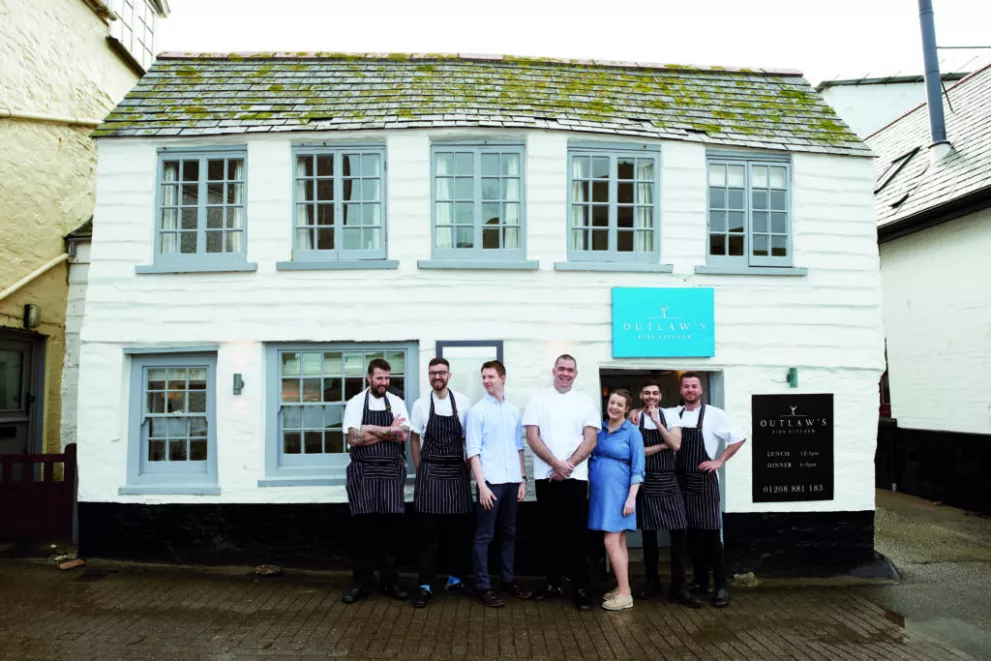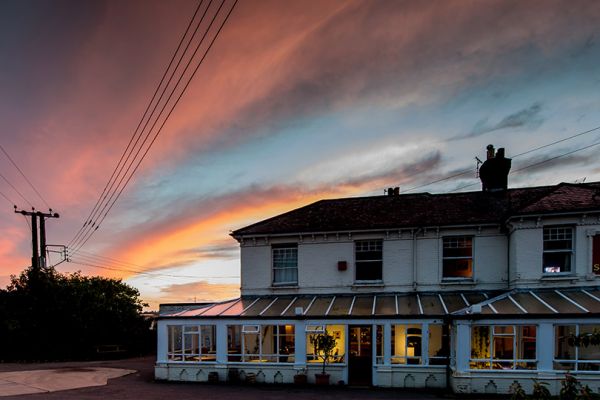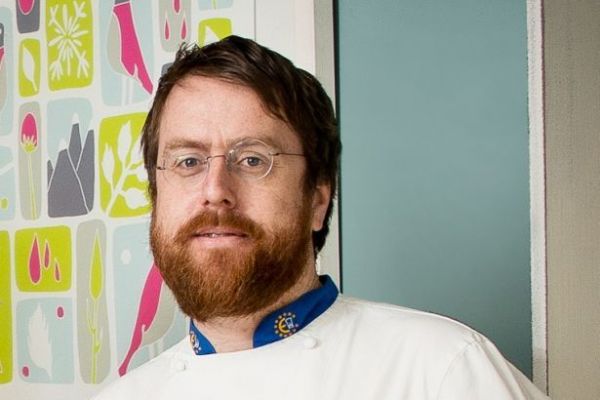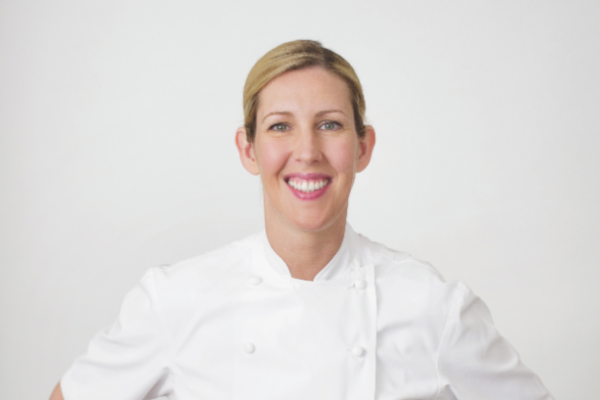Nathan Outlaw’s first job, aged eight, was buttering toast at his father’s restaurant. Since then, he has worked alongside Gary Rhodes, Éric Chavot and Rick Stein. Awarded two Michelin stars for his Restaurant Nathan Outlaw in Port Isaac, Cornwall, he has appeared on television shows such as BBC’s Great British Menu and Saturday Kitchen. He talks to Hospitality Ireland about a life in food, and his new venture.
This article was originally published in the Winter 2021 issue of Hospitality Ireland Magazine, in December of 2021.
Where did your interest in food and cooking come from?
I’ve always been around food. My grandparents and parents all had some involvement in the hospitality industry. I began cooking as a very small child – the usual cakes and things. By the time I was eight, I was going into a professional kitchen with my dad, who is a chef, and helping out with small tasks, like traying up sausages. I loved the atmosphere, adrenalin, and the banter between the team [members]. I think that’s what really got me interested. At home, food and occasions involving food, such as parties and Christmas, were very important. I did briefly want to be an animator for Disney, but I soon realised that a kid from a small town in England had very little chance of doing that! By the time I left school, I was already working weekends in a local pub kitchen, and it just went on from there.
How was lockdown for you?
For me, it was a really useful time. With nothing much else happening and the restaurants closed, it gave me time to stop, think and regroup. I’d had ideas going around in my head for a while, but when you have a busy restaurant to run, you just don’t get the time to stop and really think things through. I used the lockdown to evaluate what I really wanted out of life, and to make plans for readjustments. I also spent more time with my family and my beloved dogs, which was invaluable.
What is your assessment of the restaurant industry now?
I think it’s still very precarious. Many restaurants are still struggling financially, and no one knows what will happen in the future regarding Covid. For some, another spell of restrictions or a further lockdown will be the end, however, I think, across the board, the major challenge is about staffing. It’s a real struggle to find good staff who want to make the restaurant industry their career, for various reasons.
What are the major challenges right now?
As I said, staffing is the greatest challenge we face right now. I think it’s a mixture of Brexit, Covid, previous restaurant workers being reluctant to come back in case another lockdown happens and they have no income, and them also finding other jobs during the lockdowns we’ve had. We really need to market careers in hospitality as worthwhile and rewarding, and try to attract new people, too.
The other major factor is the cost of running a restaurant, which is becoming more and more expensive by the day. The cost of ingredients and fuel have really rocketed, and that has a massive effect on day-to-day running costs. Add to that the need to increase salaries offered to attract and retain staff due to the current shortages, and you have a perfect storm.
Having said that, for us, customers are still coming through the doors. I think this is partly because we have kept extensive measures in place to make our restaurants as safe as possible – something that has been remarked on by those customers regularly. The other reason is that, over lockdown, many people have actually saved money, as they haven’t been able to go out, so now they are treating themselves to make up for it!

What could the government be doing to make life within the industry easier?
Reduce business rates for the industry, reduce VAT for the industry, allow suitably qualified staff from outside the UK to come and take up vacant positions more easily, and begin a major scheme of high-quality training aimed at attracting new entrants to the hospitality industry.
Why did you decide to close Restaurant Nathan Outlaw and open Outlaw’s New Road?
For a while, I hadn’t been enjoying the experience of running Restaurant Nathan Outlaw, from a personal point of view. A kitchen at a two-star Michelin level doesn’t have room for error, and I’d realised that bringing on junior staff in that environment is very difficult. Over lockdown, I took a long hard look at what I want from my restaurants now, and I was able to make changes that suit everyone. Opening as Outlaw’s New Road is the result. I’m not so interested in accolades now – although any that come our way will be welcomed, of course. It’s more about keeping everyone happy and content with their role and enjoying what we’re doing.

What are the key differences between the two establishments?
There’s no difference to the quality of ingredients or cooking. We’re using the same suppliers, growers and fishermen, but now we have the flexibility to change the menu as and when, according to the best ingredients available to us on the day. It’s more about making sure everyone is happy – customers, staff, fishermen, growers and suppliers. It’s also about ensuring that the business is as resilient as possible, should there be any further disruptions caused by lockdowns.
How has the opening of Outlaw’s New Road been so far?
So far, we’ve been busier than we’ve been since we first opened Restaurant Nathan Outlaw in 2003. From the feedback we’ve had, customers are happy with the new offering and like the more relaxed way of dining. The staff are happier, too, because there is less pressure and their work-life balance has improved, due to the new working patterns we’ve introduced.
What do you hope will happen within the next year – new plans, etc.?
I hope that things keep improving, especially from a staffing point of view. Being fully staffed with people who are highly qualified and who share my vision would be a real bonus.
How do Outlaw’s New Road and Fish Kitchen work together?
Both restaurants are very closely related. They both use the same suppliers, and the levels of cooking and hospitality are the same, too. Fish Kitchen is the smaller of the two. The head chefs are in constant contact with each other, and I make a point of seeing that the staff rotate between the restaurants. That way, if there are gaps, they can be filled easily, and it gives everyone a change of scene from time to time. It works well. Are you involved in any other restaurant/food projects at the moment? No. At the present time, all my focus is on my business in Port Isaac.
What is the value of media work – Great British Menu, etc. – to your brand?
In the infancy of the business, it was very important because we’re not in London. It gave us a platform to show people who we are and what we do. Nowadays, it’s good to be included from time to time, just to refresh people’s memories, and although I like appearing on TV, travelling to TV studios in London from Cornwall invariably means taking two days out of the week, which can be a real pain!
How has the restaurant industry changed since you began your career?
Massively. There are so many more restaurants and food outlets today. When I started, it was really difficult to get a job in a good kitchen. You had to work really hard to keep your place, but today the tide has turned, and there are more jobs than staff available for them. Also, when I started, ‘fine dining’ meant French cuisine. Nowadays, it can be any cuisine, so there is so much more scope for young chefs. I also think that while there has to be some hierarchy and discipline – if only to keep the kitchen safe – things are much less formal. I can remember being scared to talk to the head chef, and I’ve also seen my share of physical abuse in kitchens, something that – I hope – isn’t tolerated today.
The major change, though, is that the general public has much more knowledge about food and cooking these days, so you can’t hide anything from them! They are more demanding, know what they should expect, and aren’t afraid to let you know when something is wrong – and with the increasing use of social media, everyone is a critic, which is sometimes a good thing, but it has its drawbacks, too.

What has been the most challenging part of your career?
In the early part of my career, the challenges were money and positive pressure. I knew that the only way to get on in this business was to keep striving to be the best and put myself under pressure to achieve that. Now, it’s time. There are never enough hours in a day, and staffing is a headache!
What has been the most rewarding aspect?
Running my own successful business and being able to meet all the challenges I’ve come up against, head on – also seeing the people I’ve employed climb the ladder and go on to have their own successful careers and/or businesses. It always gives me a thrill to know I’ve been a part of that.
How do you switch off – hobbies, etc.?
I don’t! My mind is constantly turning over ideas for new dishes or tweaks to old ones. If I’m not thinking about food, I’m thinking about improvements to the business. Wherever I go, I want to experience the local food, to see what I can learn and maybe use for my own dishes. I’ll never tire of finding out more about food.
I do like walking my dogs, though. That’s a form of relaxation for me. Also, I have a huge collection – steadily growing larger, much to my wife’s dismay! – of vinyl records that I play for enjoyment. Oh, and I love cookery books. My collection is much too big, but I do dip into them, and I can’t bring myself to part with any!
Any plans for the next six to nine months?
There are always plans formulating in my mind, but whether they come to fruition is another matter! At present, I’m thinking about how I can add accommodation to the restaurants, and I also have another cookery book in my head. We’ll have to wait and see!
AT A GLANCE
Number of Staff front of house: 10
Number of staff back of house: 12
Number of covers: per day, OFK 60, ONR 80 on average between Easter and October half term.
Percentage split between food & beverage: food 75 beverage 25








